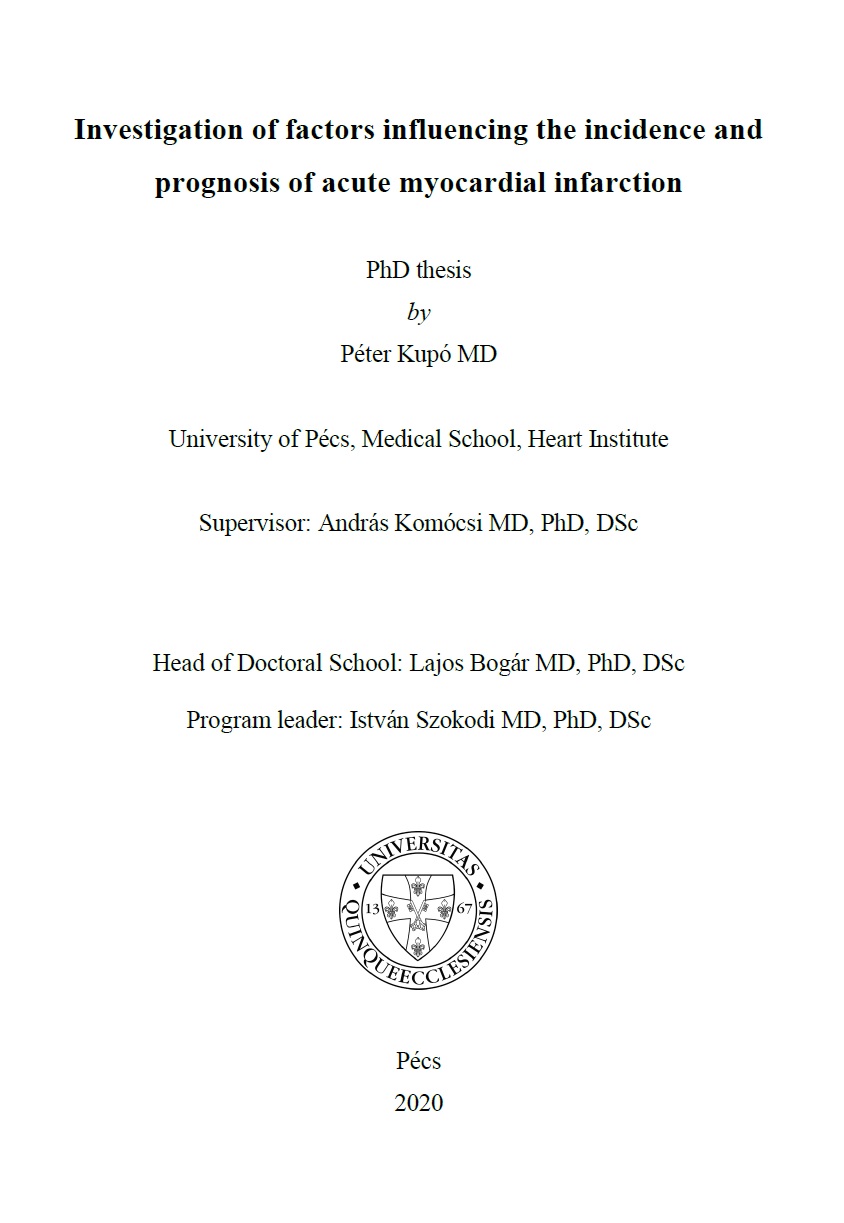Investigation of Factors Influencing the Incidence and Prognosis of Acute Myocardial Infarction
Abstract
Coronary heart disease (CHD) is the leading cause of death and disability and has a major
impact on both developing and developed nations. The acute manifestation of CHD is defined
as an acute coronary syndrome (ACS). The two main cornerstones of the treatment of this
condition are the immediate administration of antiplatelet agents after diagnosis and the
reperfusion therapy, most commonly percutaneous coronary intervention (PCI), during which
the vascular segment responsible for the development of acute myocardial infarction (AMI) is
identified and treated by mechanical reperfusion and implantation of stents in the coronary
artery stenoses. Although the therapeutic options and strategy for ACS have developed fast in
the last decades, there are still unresolved questions in need of further clarification.
Regarding the administration of antiplatelet drugs immediately after diagnosis (being most
commonly clopidogrel and aspirin in Hungary), previous studies demonstrated large interindividual
differences in response to clopidogrel. The term “clopidogrel resistance” was created
and widely applied to refer to patients with an inappropriate response, which raised important
questions regarding the treatment of AMI. Another major issue regarding the treatment of ACS
is the type of stents implanted during PCI in different patient populations since nowadays not
only bare-metal stents (BMS) but also stents delivering antiproliferative drugs (drug-eluting
stent, DES) are available.
In recent years several new anticoagulants (direct oral anticoagulant, DOAC) have been
introduced for various indications. Since the use of these drugs concerns large patient
populations it brings up important questions regarding their cardiovascular safety.

